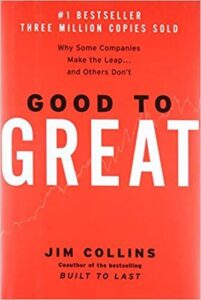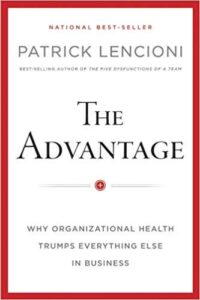To continue his Creative Managers series, Steve Smallman, CEO and co-founder, shares why the need for clear vision casting never goes away, but the place it comes from needs to change as an organization grows.
When you launch a startup, or step into a new role–anytime you’re starting something–it can be important that the founding leadership possesses charisma, even a personality, that people want to follow. You’re asking people to take risks, join the cause, catch the vision. That first team must believe in something that doesn’t quite exist yet. So, there’s a lot of vision casting and rallying. “This is gonna be great! We’re building something awesome here!”
The need for clear vision casting never goes away. But the place this comes from, the motivational center, needs to change as the organization grows.
The need for clear vision casting never goes away. But the place this comes from, the motivational center, needs to change as the organization grows.
Maybe this isn’t true for every entrepreneur at their start, but it was for me. I had learned to leverage my personality, channel my own enthusiasm and energy in a way that infected others and brought them along. I wasn’t being manipulative (at least not intentionally), because I believed myself, and I was genuinely excited about what we were building. I really felt I saw something great ahead and wanted–needed–others to see it too.
But there’s a point where leadership must rotate and make sure that what’s guiding the organization is much more than the personality of its leader. That can’t just be the raw belief of the founder that everything will turn out for the best. Charisma isn’t enough. Enthusiasm alone doesn’t create a healthy organization or business. Inspired Principles can. Inspired Principles must bolster an inspired personality. Of course, a sound revenue plan is necessary too – but that’s table stakes.
There’s a point where leadership must rotate and make sure that what’s guiding the organization is much more than the personality of its leader.
For anyone who has read the Jim Collins classic, “Good to Great,” this should sound very familiar and comes from his discussion of Level 5 leadership. When I read this book years ago, this point really convicted me. It created a point of tension where I really had to stare down some areas in which my personal charisma needed to take a back seat to sound principles of operation and a fearless look at WHY we were doing our work; WHY we were building a company. Getting the answer to that question right can unleash your organization and even provide some flexibility to the way your business plan will need to evolve over the years.
If there aren’t inspired principles leading the way, an organization can devolve into a personality cult. That isn’t to say that you can or should remove your personality from your leadership. Who you are is critical to the role you’re playing. You have your own style, your own character and it’s going to directly influence the ethos of your organization. But you must go beyond that and answer some critical questions:
- Why are you in business?
- What is the business you’re in?
- How do you want to treat the people in your organization and on your client roster?
- How do you expect to be treated?
Spend some time answering these questions, and feel free to share your answers with me. I’m no guru, but I’d be happy to respond offline.
Leaders, tell me why you’re in business or in your industry. I’ll share my WHY in my next post.
Oh, and read these books:


Have you read my other posts in the Creative Managers series?

